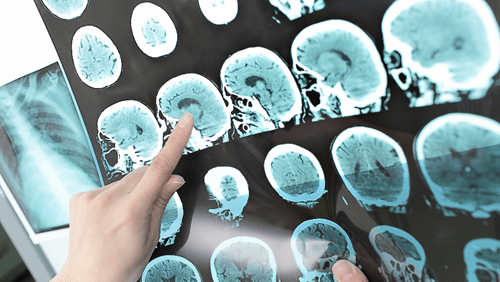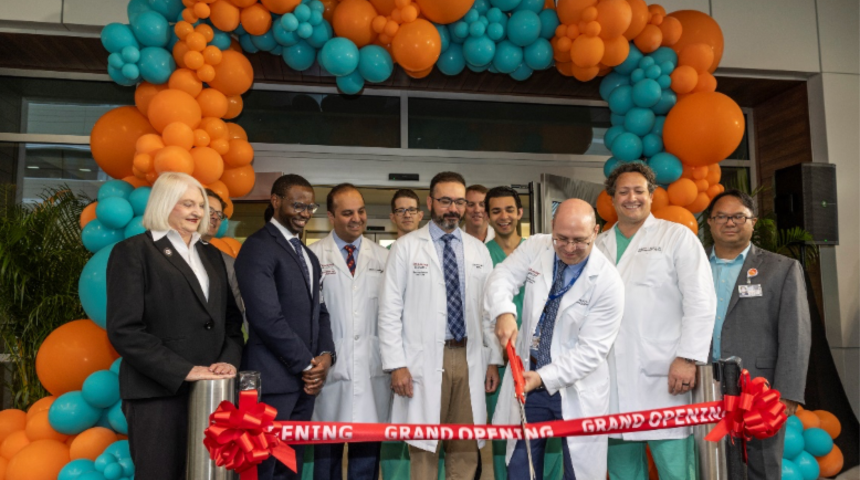If you talk with people who have multiple sclerosis (MS), you will likely find a common theme —their symptoms aren’t the same. For many people, it’s only after several puzzling and sometimes distressing symptoms appear that they are diagnosed with this serious but nonfatal disease. MS affects more than 400,000 people in the United States and 2.5 million people around the world.
What is MS?
MS is an unpredictable nervous system disease that affects your brain and spinal cord. It damages a material that surrounds nerve cells called the myelin sheath. As a result of that damage, messages from your brain to your body are slowed down or blocked.
What Are Symptoms of MS?
Part of the disease’s unpredictability is in how it affects people. Some common symptoms may include:
-
Visual problems, such as blurred vision, pain in eye movement or difficulty seeing colors
-
Weak muscles
-
Decreased balance and coordination
-
Tiredness
-
Numbness and tingling
-
Muscle spasms
Who Does MS Affect?
MS can affect anyone, however, most people are diagnosed when they are between 20 and 50 years old. The disease also affects more women than men.
What Causes MS?
Scientists aren’t sure what causes MS, but they are researching multiple possibilities. It could be an autoimmune reaction, resulting in the body’s immune cells attacking the myelin sheath. Environmental factors could play a role. MS occurs more frequently in areas that are farther from the equator — scientists are studying variables including geography, demographics, genetics and infectious causes to find out why that difference occurs. Smoking may increase the risk of developing MS.
How Is MS Diagnosed?
Because of its variety of symptoms, MS can be difficult to diagnose. There is no single test that determines the presence of MS. However, doctors will review the symptoms and consider three primary tests to see if there is damage (referred to as lesions) to the central nervous system:
-
Magnetic Resonance Imaging (MRI) — a noninvasive test that provides images of the brain and spinal cord
-
Cerebrospinal Fluid (CSF) — a test for abnormalities in the fluid present in the brain and spinal cord
-
Evoked Potentials (EP) — a test that measures electrical activity in the brain as it responds to stimuli

What Are the Types of MS?
MS is typically diagnosed in one of the following courses.
-
Clinically Isolated Syndrome (CIS): This is the initial episode or symptom of MS and, by definition, it must last at least 24 hours. However, if the episode doesn’t result in a lesion on the brain, as seen through an MRI, there is a less likely chance of CIS developing into MS.
-
Relapsing-remitting MS (RRMS): A person with this most common type of MS will have specific attacks of symptoms, called relapses, and then will have periods of partial to full recovery, called remission. This type of MS affects 85 percent of those diagnosed.
-
Primary progressive MS (PPMS): Affecting 15 percent of those with MS, this type is characterized by worsening symptoms without relapses or remission.
-
Secondary progressive MS (SPMS): Most patients initially diagnosed with RRMS will develop SPMS and a progressive worsening of symptoms over time.
How Is MS Treated?
While there is currently no cure for MS, scientists have made major breakthroughs and research is ongoing. Some current treatments include steroids for an initial MS attack, plasma exchange and disease-modulating drugs.
If you have questions or concerns about possible MS symptoms, talk with your doctor so you can get the answers and the treatment you need to manage this disease.
Are you interested in learning more about the Orlando Health Neuroscience Institute?
This highly specialized practice is the first of its kind to offer expedited care for neurosurgery patients. We will take your patient when you call – within 24 hours for urgent cases or within two days for non-urgent cases. At Orlando Health Neuroscience Institute, that’s the rule, not the exception.
Learn More










